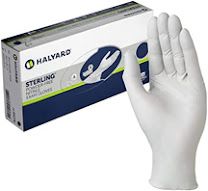O&M Halyard brought a civil action against Sri Trang US, Inc., claiming trademark infringement and dilution of two registered trademarks for medical gloves, one mark consisting of the color purple and the other the color gray. Sri Trang then filed at the TTAB petitions for cancellation of the two registrations. The Board suspended the cancellation proceeding pending the outcome of the litigation. Sri Trang then moved to stay the litigation in favor of the TTAB proceeding, but the court denied the motion because the defendants "have not shown that any potential efficiencies to be gained by awaiting the TTAB decision warrant a stay." O&M Halyard, Inc. v. Sri Trang USA, Inc, et al. , Civil No. 4:22-CV-622-SDJ (E.D. Texas January 18, 2023).

The court took guidance from the Second Circuits decision in Goya Foods, Inc. v. Tropicana Products, Inc., 846 F.2d 848 (2d Cir. 1988) regarding the doctrine of "primary jurisdiction" on behalf of an administrative agency. That doctrine is "relatively narrow" in scope, applying only in lawsuits involving an issue committed by Congress in the first instance to an agency's determination - e.g., the validity of a commercial rate or practice - and involving technical questions uniquely within the agency's expertise.
The Goya court concluded that "the basic framework of federal registration differs from other statutory regimes that implicate primary jurisdiction because the Lanham Act allows a litigant disappointed with a TTAB decision to file an action in federal district court that is 'intended to be a trial de novo.'" Furthermore, courts have a long-standing familiarity in resolving suites under both the Lanham Act and the common law of trademark infringement and unfair competition.
The Second Circuit developed the following guidance regarding whether a court should stay an action pending the outcome of a TTAB "registration action."
Here, the civil action "involves issues well beyond trademark
registration" because it includes questions of trademark
infringement and dilution. The district court therefore concluded
that "the interest in prompt adjudication of this case
substantially outweighs the value of having the view of the TTAB on
the question of registration of O&M Halyard's marks. The
doctrine of primary jurisdiction is therefore inapplicable and Sri
Trang's motion must fail."

The court also denied the motion because a stay "would unnecessarily delay the resolution of this case without providing any meaningful narrowing of the issues before the Court."
Finally, Sri Trang neither asserted nor demonstrated any hardship
or inequity if a stay is not granted. On the other hand, there is a
"fair possibility" that a stay would harm O&M Halyard
by preventing a prompt resolution of its claims.
Read comments and post your comment here.
The content of this article is intended to provide a general guide to the subject matter. Specialist advice should be sought about your specific circumstances.

